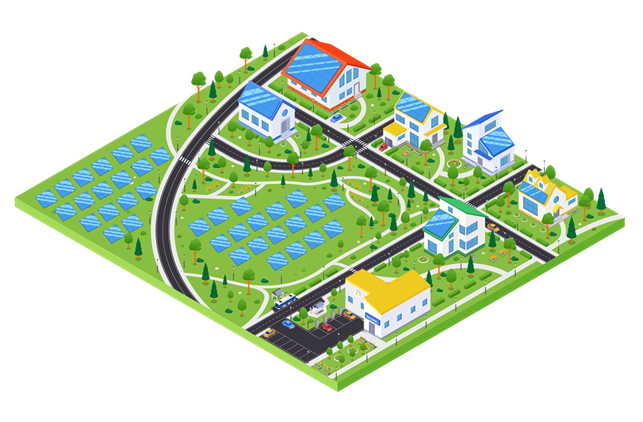Confartigianato Imprese in the Province of Cuneo intends to promote a Renewable Energy Community in the territory of the Province of Cuneo, mainly involving businesses and artisans.
A REC represents an aggregation of electricity end-users whose purpose is to produce and share renewable energy through local facilities, thus generating economic, environmental and social benefits to the members and the territory concerned. RECs, in fact, aim to promote the development and diffusion of renewable energy sources at the local level, energy efficiency, market participation of end users, and facilitate the supply of energy at affordable prices in order to combat vulnerability and energy poverty. In the Italian legislative system, REC is regulated by Legislative Decree No. 199 of November 8, 2021, which transposes the European RED 2 Directive ((2018/2001/EU).
In the current energy context, the Renewable Energy Community model is receiving a lot of attention because it assumes a strategic role in achieving the 2030 greenhouse gas emission reduction targets set by the EU under the Green Deal and Climate Target Plan (“Fit for 55”). Indeed, the EU and its member countries have committed to reduce emissions by at least 55% by 2030 compared to 1990. To achieve this goal, the “Fit for 55” package calls for 40 percent of consumption to be covered by energy produced from renewable sources, among other measures.
OUR ROLE
Envipark has been commissioned to develop a feasibility study on a model for Renewable Energy Community. Two case studies will be developed referring to the territory underlying three primary transformer substations:
- the first involves the municipalities of Bernezzo, Borgo San Dalmazzo, Boves, Cuneo, Cervasca and Vignolo;
- the second the municipalities of Cavallermaggiore, Marene, Monasterolo di Savigliano, Ruffia and Savigliano;
- the third the municipalities of Briaglia, Mondovì, Rocca de Baldi, Villanova Mondovì, Vicoforte and Vasco.
It will be carried out:
- technical-engineering activities, to identify the potential for production and consumption of renewable energy, in REC configuration in the territories involved;
- activities to define the operating mechanisms and services offered by the future REC so as to manage future revenues to implement policies of a social nature and to combat the phenomenon of energy poverty and the growing “high bills”. This includes the development of rules for the distribution of the future REC’s revenues and the identification of IT platforms useful for managing the services that the ERC will provide to its members in the future.
